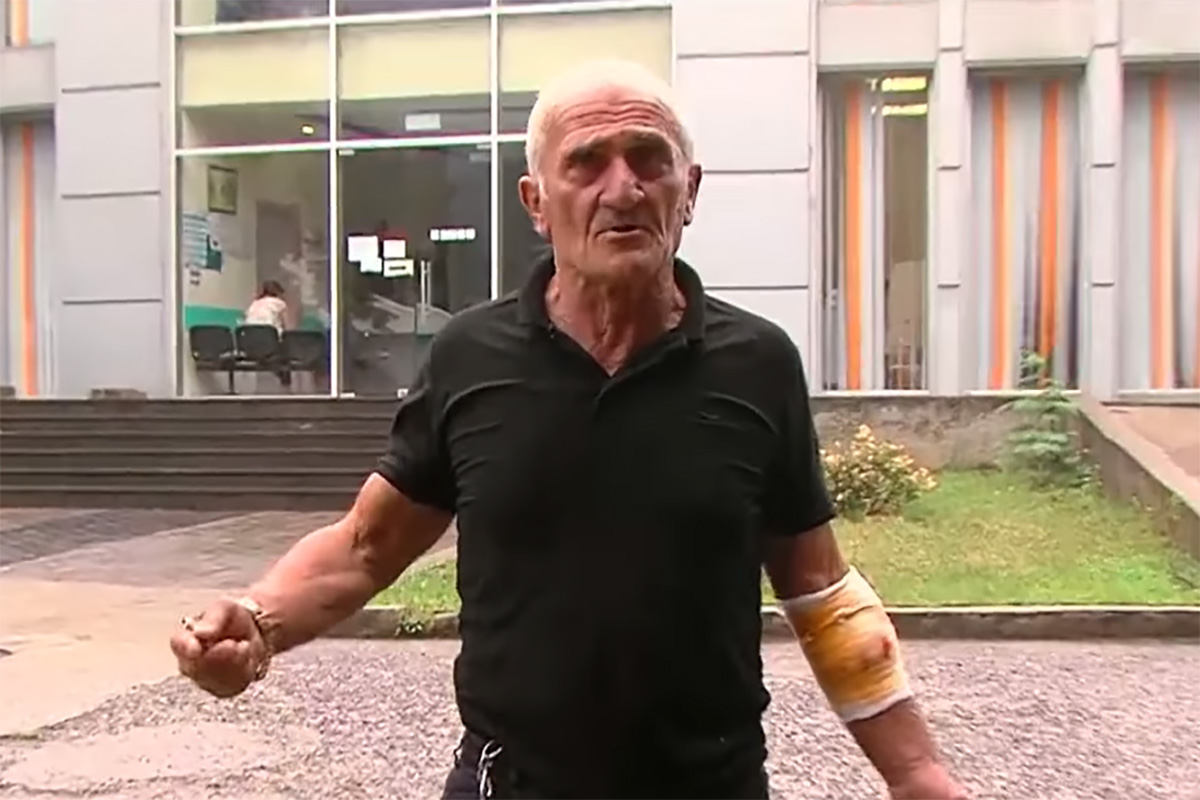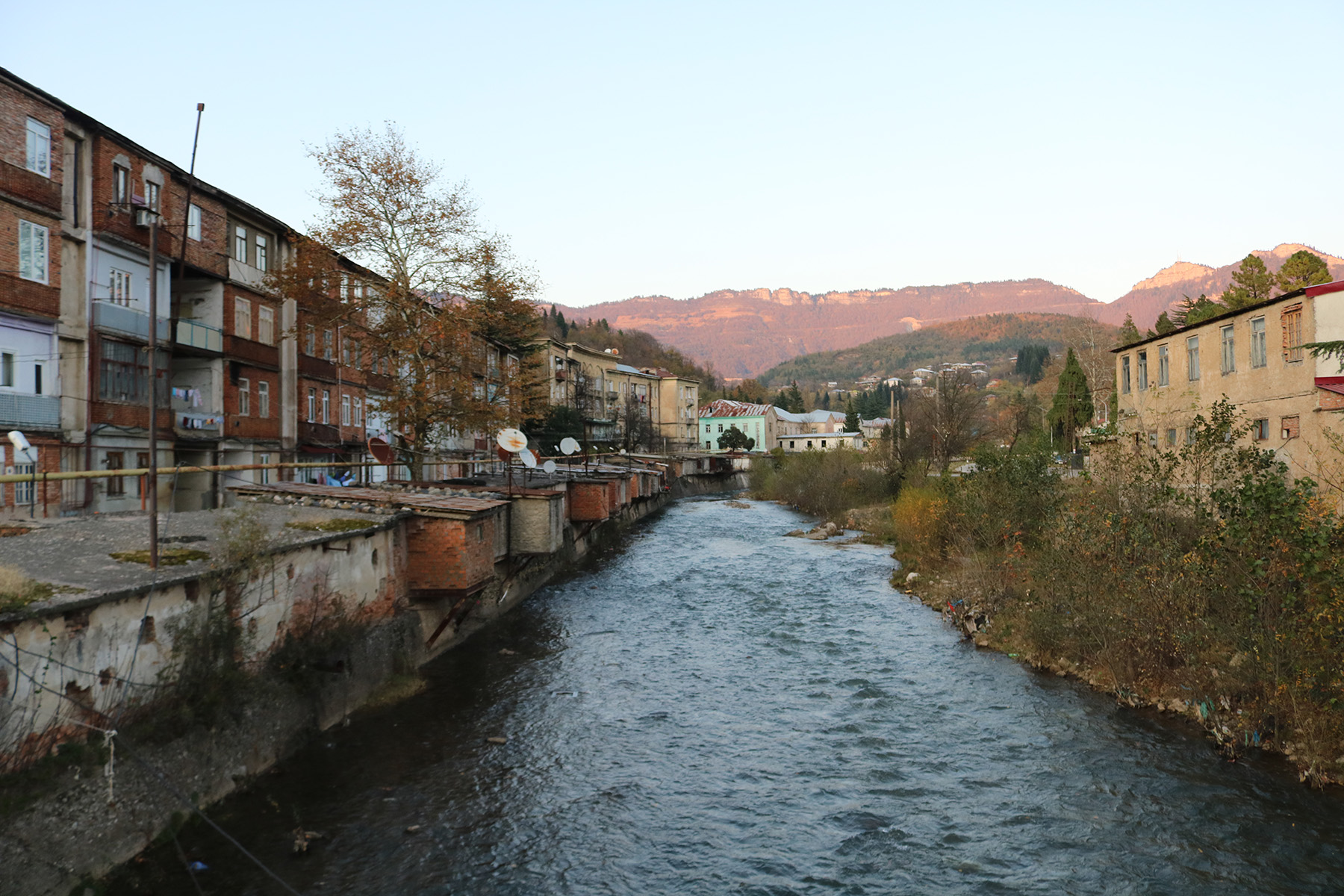
A coal miner in the Georgian town of Tkibuli has purposefully injured himself in the mine’s director’s office in protest over a reduction in his salary.
On Tuesday, Amiran Bochorishvili cut his wrists in the office of the town’s Mindeli Mine. Following the incident, Bochorishvili told journalists that as the only breadwinner in his family, was unhappy that his pay had been reduced from ₾900 ($290) per month to ₾300 ($97) after the management moved him to a new position. He was transferred after being diagnosed with chronic bronchitis.
He was discharged from the local hospital later on Tuesday after being treated by doctors.
Tamaz Dolaberidze, the Chair of the Metallurgy, Mining, and Chemical Sector Workers’ Union and Deputy Chair of the Georgian Trade Union Confederation, called the incident ‘unexpected’.
Dolaberidze told OC Media that Bochorishvili had reached an agreement with the mining company, Saknakhshiri, to be moved to a new position with fewer duties and lower risks.
He said that Bochorishvili was initially seeking compensation of six months of salary if the company wanted to let him go, something that, according to Dolaberidze, Saknakhshiri refused.
Saknakhshiri confirmed that the incident took place and cited the same reason behind his transfer.
Company spokesperson Gvantsa Delibashvili told news outlet BMG that the health of Bochorishvili, who is over 65, had to be checked for him be allowed to work in the mine.
The spokesperson described the self-inflicted injury as a ‘light scratch’, adding that there was an agreement his salary would be reduced ‘temporarily’, until a new position was introduced for him in September.

Kote Eristavi, the Social Programmes Director at the Human Rights Education and Monitoring Center (EMC), a Georgian rights group, said that Bochorishvili’s transfer may have been related to his participation in protests.
Eristavi told OC Media that he did not rule out that the intention behind such moves was to target workers actively involved in protests against unsafe labour conditions and poor wages in Tkibuli’s mines. He confirmed that Bochorishvili was among the participants in recent protests.
[Read more on OC Media: Stuck between a rock and a hard place — the miners of Tkibuli]
‘Everyone has bronchitis in the shaft’
Bochorishvili told journalists on Tuesday that he had worked down the mines for 40 years until being removed from his position.
‘Everyone has bronchitis in the shaft… Children and grandchildren need to be fed’, Bochorishvili told local newspaper the Kutaisipost.
Chronic bronchitis is common among coal miners; known as black lung disease it can be caused by the inhalation of coal dust.
According to Tamaz Dolaberidze, Saknakhshiri recently had to compensate family members of a miner who died of a heart attack while working. He said it was tangible to think the company started checking for chronic diseases among employees to avoid further risks.
‘It’s hard to assume that a company [Saknakhshiri], which employs miners in such dire conditions are now concerned with their health’, Kote Eristavi told OC Media.
Both Dolaberidze and Eristavi confirmed that the issue of occupational diseases was currently unregulated and understudied in Georgia, making it difficult for employees to seek compensation for the consequences of years of work in hazardous workplaces.
OC Media has reached out to Saknakhshiri for further details on their policy on occupational diseases.
In recent years, Tkibuli, a mining city where the Mindeli and Dzidziguri shafts are the largest employers, has become a hotbed of protests calling for safer workplace conditions and better wages.

In June, a group of coal miners from the Mindeli and Dzidziguri shafts refused to work due to what they called unsafe conditions, citing a ‘near-death’ incident involving 22 workers.
Last September, miners occupied both mine shafts and refused to vacate them unless they were paid overdue paid leave.
Miners have had to manoeuvre between demands for safer working conditions, paid leave, and for reopening the shafts — the town’s main source of jobs — after the government shut down the mines in July 2018 due to the number of workplace safety violations and following a series of workplace deaths.









